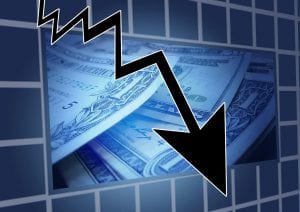
The Fallacy of Consensus: How the Collective Mindset Falters in Markets
Apr 9, 2024
Introduction
The concept of the “collective mindset” has long fascinated philosophers, sociologists, and investors alike. While the power of collective thought and action can be harnessed for positive change, it can also lead to disastrous consequences, particularly in financial markets. By examining the insights of five influential figures from 2000 BC to the present day and exploring two real-world examples, we can better understand how the collective mindset can falter in markets, leading to bubbles, crashes, and missed opportunities.
Ancient Wisdom: Aristotle and Seneca
The ancient Greek philosopher Aristotle (384-322 BC) recognized the potential pitfalls of collective thinking. In his work “Politics,” Aristotle argued that the masses are often swayed by emotion and rhetoric, rather than reason and logic. He believed this could lead to poor decision-making and the rise of demagogues who manipulate public opinion for their gain.
Similarly, the Roman philosopher Seneca (c. 4 BC – 65 AD) warned against the dangers of blindly following the crowd. In his “Moral Letters to Lucilius,” Seneca wrote, “The most powerful is he who has himself in his power”. He believed that true wisdom and success come from independent thought and action rather than conforming to the opinions of the masses.
The Insights of Charles Mackay and Gustave Le Bon
In his 1841 book “Extraordinary Popular Delusions and the Madness of Crowds,” Scottish journalist Charles Mackay (1814-1889) chronicled numerous examples of collective irrationality throughout history, including the Dutch Tulip Mania of the 1630s and the South Sea Bubble of 1720. Mackay argued that when individuals become part of a crowd, they lose their sense of individual responsibility and succumb to the “madness” of the group.
French sociologist Gustave Le Bon (1841-1931) expanded on this idea in his 1895 work “The Crowd: A Study of the Popular Mind.” Le Bon posited that crowds have a collective mind distinct from its members’ minds. He believed this collective mind is characterized by impulsivity, irrationality, and a tendency to be swayed by emotion and suggestion.
The Wisdom of Warren Buffett
Warren Buffett’s wisdom is grounded in his keen understanding of the collective mindset of the market. He recognizes that when investors are driven by fear or greed, it can lead to distorted valuations of assets. By closely observing the market sentiment and going against the grain, Buffett has seized opportunities others may have overlooked.
One real-life historical example that illustrates Buffett’s contrarian approach is the financial crisis of 2008. During this tumultuous time, many investors were gripped by fear and panic, leading to a massive sell-off in the stock market. However, Buffett saw this as an opportunity to invest in undervalued companies with solid fundamentals. By going against the prevailing sentiment and staying true to his long-term perspective, Buffett made profitable investments and emerged stronger from the crisis.
Another example that showcases Buffett’s independent thinking is his investment in The Coca-Cola Company. In the late 1980s, Coca-Cola faced significant challenges, and many investors were sceptical about its prospects. However, Buffett recognized the brand’s enduring appeal and saw an opportunity where others saw uncertainty. His investment in Coca-Cola has proven immensely successful, generating substantial returns.
Buffett’s emphasis on patience and discipline is evident in his long-term investment strategy. He does not get swayed by short-term market fluctuations or succumb to emotions. Instead, he focuses on a company’s fundamentals, its competitive advantage, and its potential for long-term growth. By maintaining a disciplined approach and staying invested for the long haul, Buffett has been able to weather market volatility and achieve remarkable success.
Warren Buffett’s wisdom lies in his ability to understand the collective mindset of the market and make independent investment decisions. His contrarian approach, rooted in crowd psychology, has allowed him to identify undervalued assets and seize opportunities others may have missed. Buffett has built a legendary investment career by maintaining a long-term perspective, practising patience, and staying disciplined.
Real-World Examples: The Dot-Com Bubble and the Sriracha Shortage
The dot-com bubble of the late 1990s serves as a prime example of how the collective mindset can falter in markets. During this period, investors became enamoured with the potential of internet-based companies, leading to a frenzy of speculation and overvaluation. Many investors disregarded traditional valuation metrics and fundamentals, instead relying on the collective belief that the internet would revolutionize the world and that stock prices would continue to rise indefinitely.
When the bubble burst in 2000, countless investors were left with significant losses, and many dot-com companies went bankrupt. The collective mindset had led to a gross misallocation of capital and a disregard for the underlying realities of the market.
More recently, the sriracha hot chilli sauce shortage has highlighted how the collective mindset can drive irrational behaviour in the face of scarcity. As the shortage persisted, demand for the popular sauce intensified, leading to a surge in prices on the secondary market. Opportunistic resellers capitalized on the situation, selling bottles for as much as $100 on Amazon and $70 on eBay.
This example demonstrates how the collective mindset can lead to a disconnect between perceived value and actual value and a willingness to pay exorbitant prices for a product that would otherwise be considered a mere condiment.
Conclusion
The fallacy of consensus in markets is rooted in the power of the collective mindset. When individuals become part of a group, they can lose their sense of individual responsibility and succumb to the impulsivity and irrationality of the crowd. This can lead to bubbles, crashes, and missed opportunities, as evidenced by the dot-com bubble and the sriracha shortage.
By examining the insights of influential figures like Aristotle, Seneca, Charles Mackay, Gustave Le Bon, and Warren Buffett, we can better understand the dangers of blindly following the crowd and the importance of maintaining an independent, long-term perspective. As investors navigate the complexities of the market, they must remain vigilant against the fallacy of consensus and strive to make decisions based on reason, logic, and a deep understanding of the underlying fundamentals.
Inspiring Ideas: Spark Fresh Thinking

Mob Rule Game: Conquer Stock Market Mayhem for Investing Success

SOS: Distress Signals from the American Economy in Trouble
Alarming Surge in Sexual Violence in Germany

Embracing Investing Psychology: Profiting from Negativity

Corn-Eating Hamster Cannibals: Unveiling the Mystery

Food for Thought Meaning: Exploring Intellectual Depths

Fragile Foundations: Central Banks Assault on Strong Currency
Chinese Recession 2016: Examining Its Impact on the Markets

Unveiling Mass Hysteria Cases: Insights into Noteworthy Examples

What is a Hedge Fund: Beyond the Basics, Embracing Volatility

Home Run with Homeschooling Ideas
Americans with No Emergency Funds: Progress & Challenges

Hookah Lounge: A Captivating Experience for Relaxation and Socialization

Anxiety Sensitivity Index Does Not Support Stock Market Crash

Unveiling the Silent Threat: Women and Heart Disease
FAQ on Collective Mindset
What did Aristotle and Seneca say about the collective mindset?
Aristotle and Seneca both recognized the potential pitfalls of collective thinking. Aristotle argued that the masses are often swayed by emotion and rhetoric, leading to poor decision-making and the rise of demagogues who manipulate public opinion for their own gain. On the other hand, Seneca warned against blindly following the crowd and emphasized the importance of independent thought and action. They believed that true wisdom and success come from individual autonomy rather than conforming to the opinions of the masses.
How did Charles Mackay and Gustave Le Bon contribute to the understanding of the collective mindset?
In his book “Extraordinary Popular Delusions and the Madness of Crowds,” Charles Mackay chronicled numerous examples of collective irrationality throughout history. He argued that when individuals become part of a crowd, they lose their sense of individual responsibility and succumb to the “madness” of the group. Gustave Le Bon expanded on this idea in his work “The Crowd: A Study of the Popular Mind,” positing that crowds have a collective mind characterized by impulsivity, irrationality, and susceptibility to emotion and suggestion.
How does Warren Buffett’s understanding of the collective mindset inform his investment strategy?
Warren Buffett’s wisdom is grounded in his keen understanding of the collective mindset of the market. He recognizes that when investors are driven by fear or greed, it can lead to distorted valuations of assets. By closely observing market sentiment and going against the grain, Buffett has been able to seize opportunities that others may have overlooked. His contrarian approach, rooted in crowd psychology, allows him to identify undervalued assets and make independent investment decisions. Buffett’s emphasis on patience, discipline, and a long-term perspective helps him navigate market volatility and achieve remarkable succes.


